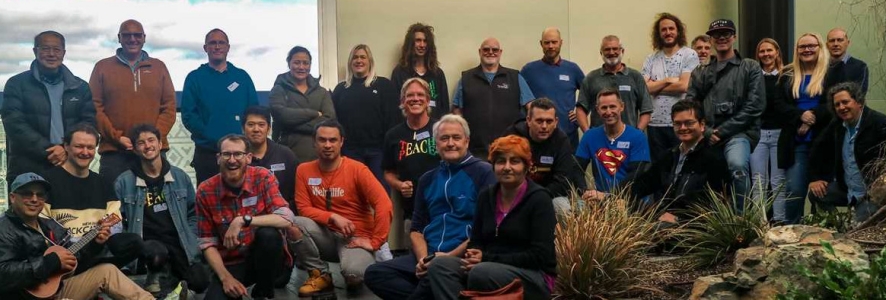By Russell Ballantyne
The problem is that we are still viewing the care and education of young children as the work of women. Only 2% of the teachers within mainstream early childhood are not women (24500 female teachers, 500 male)
The problem is that in early childhood, the populations we work with are both male and female. In a time of barrier breaking both globally and socially, early childhood has lagged behind. Women are encouraged into many roles that before were perceived the domain of males – eg doctors and lawyers, engineers, scientists, and rightly so. However the opposite isn’t occurring.
In my first decade as a kindergarten teacher in 1980’s the percentage of male teachers then in a very small industry was around the 2% - the same figure today 30 years later -so why hasn’t this changed?
The answer is simple – men have not been actively recruited. No one has taken the responsibility to ask what do we need to do? Isn’t it obvious?
Each year there have been advertisements encouraging women to join the armed forces, the Police, Department of Corrections, engineering training for example. Individual organisations have set goals to offset diversity imbalances. Organisations realise the importance of diversity and are trying to reflect the market they operate in. There is a whole raft of research on the advantages of promoting diversity, and most industries have begun to fully embrace this. We have a superb organisation called Diversity Works (https://diversityworksnz.org.nz) which has a plethora of information and success stories of how organisations have changed their workforce but apparently our Education Ministry, who oversees teacher recruitment hasn’t found their way to this.
In fact Jackie Blue the EEO Commissioner stated in 2014:
“The education sector is unquestionably female dominated – teachers in early childhood, primary school and secondary schools are mostly women. The job is now seen as ‘women’s work’ and by extension education centres are arguably a “women’s world.” This limits young boy’s views about what they want to be and do when they grow up. It limits their ideas about what men do and what women do. It reinforces gender stereotypes that so limit the lives of both men and women.”
Education has always valued diversity. Education, has always been about opening the mind to other possibilities, but the recruitment of men into early childhood has never been considered a need. When we have raised this issue we have always been met with the stock barrier – “the gender of teachers is irrelevant – what we want is good teachers”. Now funnily enough we want good teachers too – but we know that they can be both men and women –so now let’s work hard to get the good men.
And that is the problem – that last part has never happened. Jackie Blue stated “Our young girls and boys need to see all of the community reflected in early childhood settings. Men must be made welcome, and actively recruited into the sector.” 2014.
Yet there are still some men in the sector despite this perceived antipathy by the recruiters? Has anyone asked the men who have ended up in early childhood what their secrets are? Could we use their stories as a lever to encourage more men who haven’t yet discovered what a cool job being an early childhood teacher is?
What do men bring to the sector? Men bring different perspectives, experiences and life skills, which add richness to the centre programme. Men bring humour, energy, a physicality, a different perception to conflict perhaps and add value for other men coming into the centre. Men make the environment a more inclusive place for both fathers and children as boys and girls get to view constructs of masculinity in action. The more men, the more variety of masculinity, the more options available for our boys to define who they are and who they want to be.
Whanau Manaaki kindergartens have been a leader in local innovations with their “Ymen” scheme which shows what can happen when groups work together and men are supported. This shows that it can be done and needs to be sustained and inclusive. WE just need more of these.
Now really how can that be so hard?
About the author
Russell Ballantyne is President of EC-MENz and has been teaching in ECE since 1983. He's worked in a variety of roles, kindergarten teacher, head teacher, Senior teacher, General Manager and Visiting lecturer and is now a Centre Owner/Teacher at Early Childhood on Stafford in Dunedin. Russell has a strong passion about children experiencing gender diversity daily.


